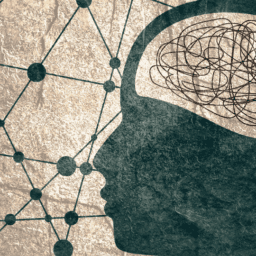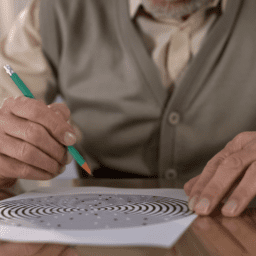Every first Tuesday of the month, care partners gather for our Parkinson’s Care Partner Meetup to talk about the various issues facing those who love and care for people living with Parkinson’s. (Register here to join us in the future.) During our April meetup, our panelists answered questions from the audience. (You can always send your questions to us via this form.) Here are some of the key takeaways we learned this week:
Every Person and Every Situation is Different
All people with Parkinson’s experience their symptoms differently, and all care partners have their own ways of handling them. The most important thing to remember along this road is that you’re doing a good job. Just showing up to our meetups is showing your dedication to being the best care partner you can be. If you missed the meeting but are still reading this article, the same is true; you are doing your best, and that is more than enough.
Adjusting to a Parkinson’s Diagnosis
So many different things happen when the person you love is diagnosed with Parkinson’s. When Gail’s husband, Gene, was diagnosed with Parkinson’s, he was diagnosed with Parkinsonism because he wasn’t shaking and was exhibiting symptoms more consistent with Lewy body dementia. Gail didn’t get a formal diagnosis of Parkinson’s until after Gene had passed away, and they donated his brain to science. If your person with Parkinson’s is diagnosed with Parkinsonism, it may mean they do have Parkinson’s, but their autonomic symptoms are more severe than their motor symptoms. But it also speaks to the reality that Parkinson’s is a type of Parkinsonism, and being able to differentiate between all of them isn’t always as straightforward as we hope.
sharing a Parkinson’s diagnosis
Sometimes, your person with Parkinson’s won’t want to tell people they have Parkinson’s. This may be due to embarrassment, shame, or simply not wanting to deal with others’ perceptions. As a care partner, you may want to keep the diagnosis private because you believe you can handle everything independently. However, going it alone can also lead to isolation, leading to other issues for you and your person with Parkinson’s.
While it may be uncomfortable to share a Parkinson’s diagnosis, many people will likely appreciate being told and will want to help and support you. Our Ambassadors are always ready and willing to help you. Others rely on other family members, adult children, young children, neighbors, colleagues, etc. You don’t have to do this alone.
Parkinson’s silver linings
For some people, a Parkinson’s diagnosis, while challenging, has made their lives better in many ways. They exercise more, eat better, and connect with others more regularly because their person with Parkinson’s needs to do all those things to live well. Some care partners change careers to be more available to their person with Parkinson’s and end up doing something more aligned with their values and passions. Finally, many care partners talk about how much being a care partner has taught them patience, which helps them in that role and all areas of their life.
Additional Resources
Here are some other resources we hope you find useful:
Urinary Dysfunction and Parkinson’s
[Webinar Recording] Sexuality and Intimacy for People with Parkinson’s and Their Care Partners
What You Don’t Know about Palliative Care for Parkinson’s
Parkinson’s Disease Psychosis Q&A with Dr. K (Cherian Karunapuzha, MD)
Join us for our next Care Partner Meetup on Tuesday, May 2, at 12 pm MDT.
Would you like more information
on being a Parkinson’s care partner?
You can learn much more about living well as a Parkinson’s care partner today through our Every Victory Counts® Manual for Care Partners.. Click the link below to get your free manual now.
Thank you to our 2023 Peak Partner Amneal for allowing us to make the manual for care partners available and free to all.

















